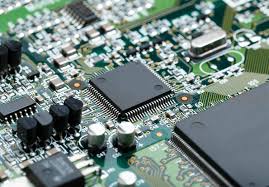In the fast-growing electronics industry, counterfeit integrated circuits (ICs) have become a significant challenge. These fake components not only compromise product reliability but can also lead to costly failures and safety hazards. To combat this issue, IC counterfeit testing plays a crucial role in verifying component authenticity and ensuring supply chain integrity.
What is IC Counterfeit Testing?
IC counterfeit testing is a series of inspection and verification processes designed to detect fake, substandard, or tampered integrated circuits. These tests help manufacturers, suppliers, and businesses confirm the quality and authenticity of electronic components before they are used in critical applications.
Methods of IC Counterfeit Testing
To identify counterfeit ICs, multiple testing techniques are employed, including:
- Visual Inspection: Using microscopes and high-resolution imaging to check for anomalies in markings, logos, or package defects.
- X-Ray Inspection: Examining internal structures to detect inconsistencies in bonding wires, die alignment, and internal architecture.
- Decapsulation & Die Analysis: Removing the IC’s outer layer to inspect the internal die and verify authenticity.
- Electrical Testing: Comparing the electrical characteristics of a component against known good samples.
- Functional Testing: Running performance tests to ensure the IC operates as intended.
- Scanning Electron Microscopy (SEM): Providing detailed imaging to detect alterations, etching, or remarked components.
- Laser Ablation & Surface Analysis: Identifying repainted or modified surface markings.
- Chemical Testing: Analyzing the composition of materials to detect inconsistencies.
Importance of IC Counterfeit Testing
- Prevents System Failures: Ensures only authentic components are used in electronic devices.
- Enhances Product Reliability: Reduces the risk of premature failure due to substandard parts.
- Protects Brand Reputation: Maintains trust and credibility by preventing counterfeit infiltration.
- Ensures Compliance: Meets industry standards and regulatory requirements for quality control.
- Reduces Financial Losses: Avoids costly recalls and repairs due to counterfeit components.
Industries That Rely on IC Counterfeit Testing
IC counterfeit testing is essential in industries where reliability is paramount, such as:
- Aerospace & Defense
- Automotive Electronics
- Medical Devices
- Telecommunications
- Consumer Electronics
- Industrial Automation
Conclusion
With the rise in counterfeit electronic components, IC counterfeit testing has become a necessity to safeguard product quality and performance. By implementing rigorous testing protocols, businesses can ensure the authenticity of ICs and maintain a secure supply chain. Investing in counterfeit detection not only prevents failures but also upholds the integrity of the electronics industry.

